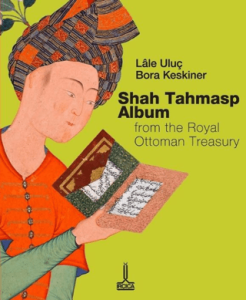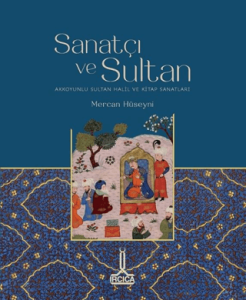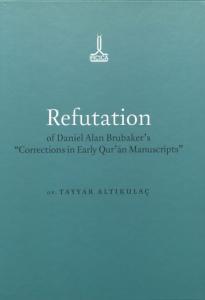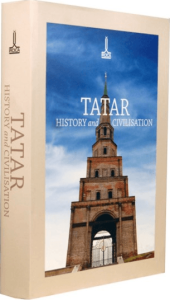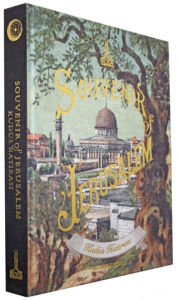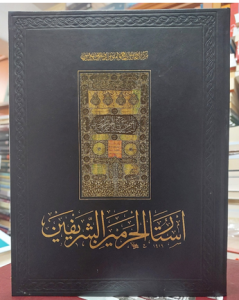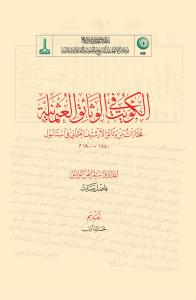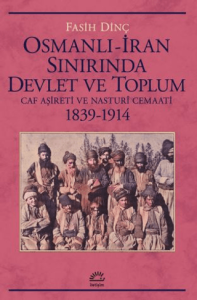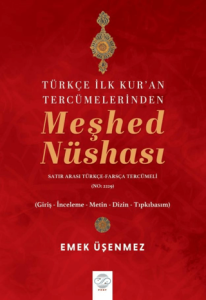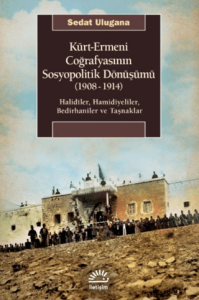Osmanlı Döneminde Mağrib ve Batı Akdeniz The Maghreb and the Western Mediterranean in the Ottoman Era, Proceedings of the International Congress on - Rabat, Morocco, 12-14 November 2009 بحوث الندوة الدولية حول المغارب والبحر الأبيض المتوسط الغربي في العصر العثماني

This book resulted from the congress which was organized jointly by the Royal Institute for the History of Morocco (IRRHM, Rabat) and IRCICA with the collaboration of the Faculty of Letters and Humanities, Mohammed V University, in Rabat. Its theme, with geographical focus on “The Maghreb and Western Mediterranean” and historical reference to the Ottoman period, brought into scope a multitude of issues of the sea and the land, travels and trade, political rivalries, economic competition, dynasties and legal systems. Relations between the states and societies around the Mediterranean, development of technology, arts and culture, and the external and the internal factors always at play in this zone of crossings, all came into the analysis. Thus the congress covered a wide range of subjects. The session theme “Discovering The Other” was addressed with studies on geographers and travelers with regard to how peoples of the Maghreb and the Ottoman world came to know each other through these sources. Among the texts studied were the works of illustrious Ottoman scientists-geographers such as Piri Reis and Katip Çelebi about Morocco and the writings emanating from Moroccan ambassadorial missions and Moroccan travelers about Ottoman lands. Two sessions were devoted to the theme “Maghrebians and Ottomans”, dealing with a wide gamut of cases of unity and conflict, cooperation and competition, perception and treatment. Another session was devoted to the theme of economy and architecture, with references to European trade in the region, Ottoman legislation on trade, infrastructural developments and mutual influences between Ottoman and Maghrebian architectural styles and elements. The session on “Western Mediterranean between Confrontation and Communication” addressed several specific subjects, including navies, slavery, and pilgrimage routes, while the session titled “Between Localism and Centralism” discussed challenging topics in the context of relations between the Ottoman State and the regions then falling within and outside its realm. As to the theme “Maghreb in World History”, it highlighted diverse cases and channels of diplomatic relations within the region placing them in the context of the surrounding world historical situations. The papers are presented in this volume in their original languages – in Arabic, English, French and Turkish.
This book resulted from the congress which was organized jointly by the Royal Institute for the History of Morocco (IRRHM, Rabat) and IRCICA with the collaboration of the Faculty of Letters and Humanities, Mohammed V University, in Rabat. Its theme, with geographical focus on “The Maghreb and Western Mediterranean” and historical reference to the Ottoman period, brought into scope a multitude of issues of the sea and the land, travels and trade, political rivalries, economic competition, dynasties and legal systems. Relations between the states and societies around the Mediterranean, development of technology, arts and culture, and the external and the internal factors always at play in this zone of crossings, all came into the analysis. Thus the congress covered a wide range of subjects. The session theme “Discovering The Other” was addressed with studies on geographers and travelers with regard to how peoples of the Maghreb and the Ottoman world came to know each other through these sources. Among the texts studied were the works of illustrious Ottoman scientists-geographers such as Piri Reis and Katip Çelebi about Morocco and the writings emanating from Moroccan ambassadorial missions and Moroccan travelers about Ottoman lands. Two sessions were devoted to the theme “Maghrebians and Ottomans”, dealing with a wide gamut of cases of unity and conflict, cooperation and competition, perception and treatment. Another session was devoted to the theme of economy and architecture, with references to European trade in the region, Ottoman legislation on trade, infrastructural developments and mutual influences between Ottoman and Maghrebian architectural styles and elements. The session on “Western Mediterranean between Confrontation and Communication” addressed several specific subjects, including navies, slavery, and pilgrimage routes, while the session titled “Between Localism and Centralism” discussed challenging topics in the context of relations between the Ottoman State and the regions then falling within and outside its realm. As to the theme “Maghreb in World History”, it highlighted diverse cases and channels of diplomatic relations within the region placing them in the context of the surrounding world historical situations. The papers are presented in this volume in their original languages – in Arabic, English, French and Turkish.

